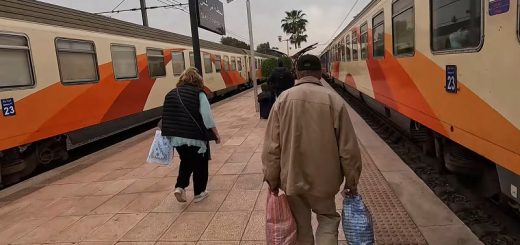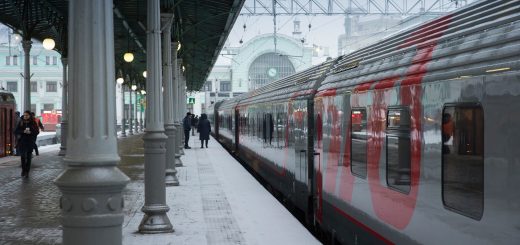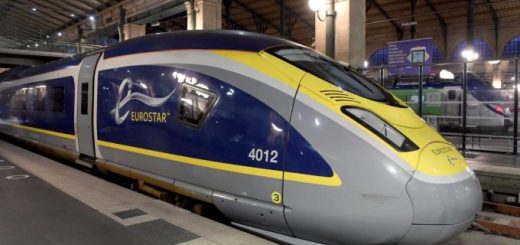WESTbahn Launches New Stuttgart to Vienna Train Service
Private Austrian railway company WESTbahn is set to launch a new train service linking Stuttgart, Munich, and Vienna.
The new service will not only provide Austrian and German rail travellers with a greater range of options, but it could also be a convenient choice for British travellers heading to the continent by train.

A WESTbahn double deck train. ©WESTbahn Management GmbH
About the new WESTbahn train service to Stuttgart
WESTbahn is a private railway company and open-access operator offering train services in Austria, competing directly with the Austrian Federal Railways (Österreichische Bundesbahnen, or ÖBB), the country’s national operator.
From its Vienna terminus at Wien Westbahnhof, WESTbahn runs trains to destinations in the Austrian states of Upper Austria, Salzburg, and Tyrol, serving cities along the main railway line to the west such as Linz, Salzburg, Innsbruck, Feldkirch, and Bregenz.
WESTbahn also runs trains between Vienna, Linz, Salzburg, and Munich in the German state of Bavaria.
From 15 December 2024, some WESTbahn train services from Vienna to Munich will be extended to reach Stuttgart in the southwestern German state of Baden-Württemberg.
According to WESTbahn, the rail company will initially operate a twice-daily service between Vienna and Stuttgart, a trip taking around 6.5 hours.
Between Munich and Stuttgart, the WESTbahn train will stop at Augsburg, Günzburg (home to Legoland Germany), and Ulm.

Stuttgart Hbf, the main railway station in Stuttgart. ©Paliparan
Tickets and prices
Ticket prices between Vienna and Stuttgart will start at €28.99 for the cheapest second-class ticket, while on the Salzburg-Stuttgart route, they will begin at €16.99.
However, prices depend on how early you book, ticket flexibility, and travel class.
You can also travel on WESTbahn trains with an Interrail or Eurail pass, although a seat reservation is not included — this can be made separately for a small surcharge on the WESTbahn website.
Note that when travelling with an Interrail or Eurail pass on WESTbahn, you are only allowed to use standard class, even if you hold a first-class rail pass.
If you wish to travel in WESTbahn’s Comfort Class or First Class with your Interrail or Eurail pass, you will need to book an upgrade for an additional surcharge.
You can find more information about using your Interrail or Eurail pass on WESTbahn trains here.
WESTbahn rolling stock
WESTbahn uses modern double-deck trains, offering three different classes:
– Standard class
– Comfort class
– First class
Standard class features seats arranged in a 2+2 configuration or in bays of four, similar to regular second-class seats on trains.
Comfort class has the same seats as standard class, although they are arranged in bays of four around large tables, providing you with more legroom.
First class offers more comfortable seats in a spacious 1+2 configuration, with some seats arranged in bays of four around a table, duo seats around a table, or solo seats.
There are vending machines on board WESTbahn trains where you can buy tea, coffee, soft drinks, or snacks.
WESTbahn trains have free Wi-Fi, and seats in all classes have access to power sockets.

First class seats on the upper deck of a WESTbahn double deck train. ©WESTbahn Management GmbH
Useful for British travellers
The new WESTbahn train service to Stuttgart is also excellent news for British rail travellers, as it provides another alternative to travel to Bavaria or Austria.
From London, it’s very straightforward to reach Stuttgart by taking the Eurostar to Paris (Gare du Nord), followed by a direct TGV from nearby Paris Gare de l’Est to Stuttgart Hbf.
At Stuttgart Hbf, you can change to a WESTbahn train to reach beautiful cities in Germany or Austria, such as Ulm, Augsburg, Munich, Salzburg, Linz, or Vienna, or use the service to travel to Günzburg to visit Legoland Germany.
Of course, it’s always best to compare prices before booking your ticket, as national operators like Deutsche Bahn and ÖBB may offer cheaper alternatives on their trains.
The bottom line is that increased competition on the Stuttgart-Munich-Vienna route is likely to result in lower prices overall, which is positive news for rail travellers.





